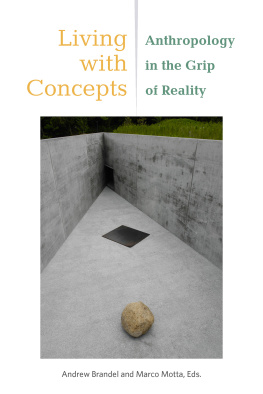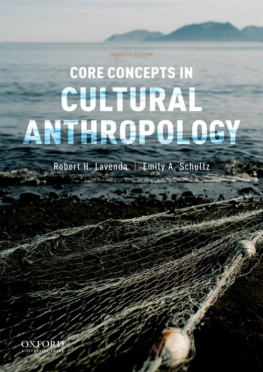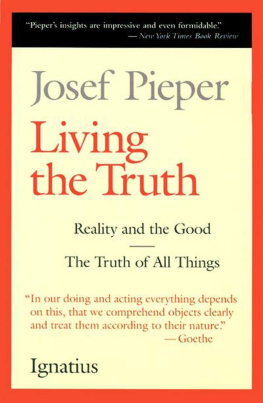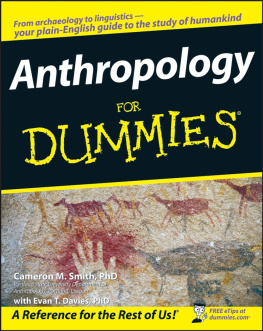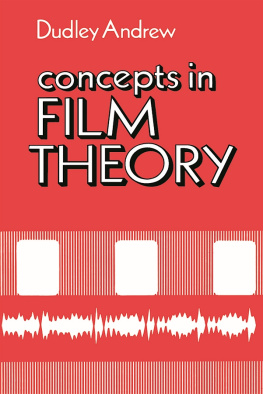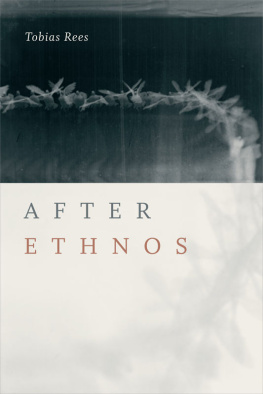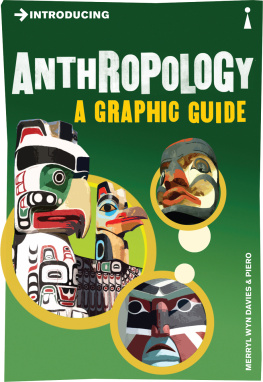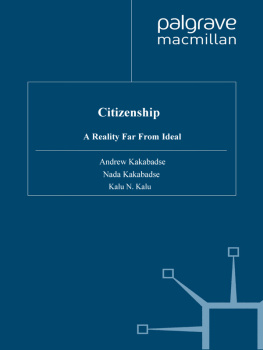Andrew Brandel - Living with Concepts: Anthropology in the Grip of Reality
Here you can read online Andrew Brandel - Living with Concepts: Anthropology in the Grip of Reality full text of the book (entire story) in english for free. Download pdf and epub, get meaning, cover and reviews about this ebook. year: 2021, publisher: Fordham University Press, genre: Religion. Description of the work, (preface) as well as reviews are available. Best literature library LitArk.com created for fans of good reading and offers a wide selection of genres:
Romance novel
Science fiction
Adventure
Detective
Science
History
Home and family
Prose
Art
Politics
Computer
Non-fiction
Religion
Business
Children
Humor
Choose a favorite category and find really read worthwhile books. Enjoy immersion in the world of imagination, feel the emotions of the characters or learn something new for yourself, make an fascinating discovery.
- Book:Living with Concepts: Anthropology in the Grip of Reality
- Author:
- Publisher:Fordham University Press
- Genre:
- Year:2021
- Rating:5 / 5
- Favourites:Add to favourites
- Your mark:
- 100
- 1
- 2
- 3
- 4
- 5
Living with Concepts: Anthropology in the Grip of Reality: summary, description and annotation
We offer to read an annotation, description, summary or preface (depends on what the author of the book "Living with Concepts: Anthropology in the Grip of Reality" wrote himself). If you haven't found the necessary information about the book — write in the comments, we will try to find it.
Living with Concepts: Anthropology in the Grip of Reality — read online for free the complete book (whole text) full work
Below is the text of the book, divided by pages. System saving the place of the last page read, allows you to conveniently read the book "Living with Concepts: Anthropology in the Grip of Reality" online for free, without having to search again every time where you left off. Put a bookmark, and you can go to the page where you finished reading at any time.
Font size:
Interval:
Bookmark:


Thinking from Elsewhere
Series Editors
Clara Han, Johns Hopkins University
Bhrigupati Singh, Ashoka University
International Advisory Board
Roma Chatterji, University of Delhi
Veena Das, Johns Hopkins University
Robert Desjarlais, Sarah Lawrence College
Harri Englund, Cambridge University
Didier Fassin, Institute for Advanced Study, Princeton
Angela Garcia, Stanford University
Junko Kitanaka, Keio University
Eduardo Kohn, McGill University
Heonik Kwon, Cambridge University
Michael Lambek, University of Toronto
Deepak Mehta, Ashoka University, Sonepat
Amira Mittermaier, University of Toronto
Sameena Mulla, Marquette University
Marjorie Murray, Pontificia Universidad Catlica de Chile
Young-Gyung Paik, Jeju National University
Sarah Pinto, Tufts University
Michael J. Puett, Harvard University
Fiona Ross, University of Cape Town
Lisa Stevenson, McGill University
ANDREW BRANDEL
AND MARCO MOTTA,
EDITORS
FORDHAM UNIVERSITY PRESS
New York 2021
Copyright 2021 Fordham University Press
All rights reserved. No part of this publication may be reproduced, stored in a retrieval system, or transmitted in any form or by any meanselectronic, mechanical, photocopy, recording, or any otherexcept for brief quotations in printed reviews, without the prior permission of the publisher.
Fordham University Press has no responsibility for the persistence or accuracy of URLs for external or third-party Internet websites referred to in this publication and does not guarantee that any content on such websites is, or will remain, accurate or appropriate.
Fordham University Press also publishes its books in a variety of electronic formats. Some content that appears in print may not be available in electronic books.
Visit us online at www.fordhampress.com.
Library of Congress Cataloging-in-Publication Data
Names: Brandel, Andrew, editor. | Motta, Marco, editor.
Title: Living with concepts : anthropology in the grip of reality / Andrew Brandel and Marco Motta, editors.
Description: First edition. | New York : Fordham University Press, 2021. | Series: Thinking from elsewhere | Includes bibliographical references and index.
Identifiers: LCCN 2021010945 | ISBN 9780823294268 (hardback) | ISBN 9780823294275 (paperback) | ISBN 9780823294275 (epub)
Subjects: LCSH: Ideals (Philosophy) | Concepts.
Classification: LCC B105.I3 L58 2021 | DDC 121/.4dc23
LC record available at https://lccn.loc.gov/2021010945
Printed in the United States of America
23 22 215 4 3 2 1
First edition
Andrew Brandel and Marco Motta
Sandra Laugier
Rasmus Dyring and Thomas Schwarz Wentzer
Veena Das
Andrew Brandel
Jocelyn Benoist
Marco Motta
Michael J. Puett
Michael D. Jackson
Michael Lambek
Michael Cordey
Lotte Buch Segal
ANDREW BRANDEL AND MARCO MOTTA
Be it life or death, we crave only reality.
HENRY DAVID THOREAU
We want to walk: so we need friction. Back to the rough ground!
LUDWIG WITTGENSTEIN
Anthropology, one might say, has long relied on the power of concepts to represent reality. They are believed to help us unlock the meaning behind diverse and often disparate practices and experiences. Often these have been imported from the colonial archive, or from Christianity; this is the case, for example, with religion, reciprocity, and kinship. But they have also regularly emerged from encounters in the field, adopted from societies where anthropologists have carried out ethnographic research and been subsequently transformed, elevated, and moved. One thinks of cases like Durkheims use of the Melanesian concept mana, one he says is the exact equivalent of the Sioux notion of wakan and Iroquois orenda, and which he uses as an analytical lever he applies in the analysis of Australian totemism; or of Mausss popularization of the Maori term hau to explain common features of reciprocal exchange across societies reaching as far as the Pacific Northwest. These concepts have become anthropological icons unto themselves, and contemporary efforts are underway to mobilize them in still new contextsfor example, as William Mazzarella (2017) has done for mana in relation to the rise of mass mediatization. Recently, the field has also been witness to rallying calls against the over-cultivation of the concept in favor of relations (Lebner 2020), or at least to making them vulnerable to destabilization by bringing them nearer to experience (Mattingly 2019). But for all this debate, we have rarely paused to ask, in any systematic way, what our concepts are, how they are made, and what they do. What do we mean when we talk about concepts?
At the same time, philosophy has frequently been described as the discipline concerned with analysis and production of concepts. And in recent years, we have begun to see illuminating conversations emerge about the attraction or repulsion of particular anthropologists to particular philosophers, of even to particular philosophical concepts, which have encouraged us to attend to the new forms concepts take as they move into new contexts (Biehl and Locke 2017; Jackson 2009; Pedersen and Dalsgrd 2015; Stoler 2016). Such endeavors, rather than treating anthropology and philosophy as two fully constituted disciplines, begin from singular encounters that reflect pressures specific to a situation (Das, Jackson, Kleinman, and Singh 2014). This book carries these discussions forward through a related though different tack. It is an attempt to think through the resonances between certain strands of contemporary philosophy and anthropology, and how they might benefit from an engagement with each other, by responding to a fairly specific question: how different would concepts appear if we looked at the way concepts are embedded in our lives rather than thinking of them as mere analytical tools? What does it mean to live with our concepts?
The project took shape over two years of conferences, panels, and workshops designed to engage a critical and collaborative dialogue. We invited a group of scholars from each discipline whose work has led them to dialogue with thinkers in the other field. A first meeting took shape under the provisional heading of a discussion on concepts, experience, and the claim to the real. There we seized the opportunity to discuss whether there were ways of thinking about the intelligibility of the content of anthropological research beyond those that depend on our capacity to generalize and to place our concepts over and above those we encounter in the field. The first iteration of papers coalesced of their own accord around two fascinating and fruitful themes: one on diagnosis, prognosis, and therapeutics, and the other on the borderlines of the imagination and reality. The interventions prompted us to ask first, in relation to clinical situations, if there were ways of smoothening the normative effects of concepts for anthropology, by allowing disruptive and troubling elements of ethnographies to be taken into account rather than simply be eclipsed in the escape to rarefied domains like metaphysics. In other words, we began asking ourselves how a case might disclose the norms through which physicians and patients apprehend its specificity and instruct us on how concepts work. But we also wanted to link these issues with those posed by the other set of papers centering on the relationship between reality and the imagined, their interdependences and their divergences, since it appeared to us that there was something we needed to clarify about the role imagination plays in the way we anthropologists and the people we meet in the field picture reality. If our notion of experience is opened up to the imagined as a necessary component of the real, then we felt compelled to ask how this might affect our understanding of concepts. Different configurations of the relationship between concept and experience complicated long-held assumptions about division of imagination and reality, and therefore demanded further exploration.
Font size:
Interval:
Bookmark:
Similar books «Living with Concepts: Anthropology in the Grip of Reality»
Look at similar books to Living with Concepts: Anthropology in the Grip of Reality. We have selected literature similar in name and meaning in the hope of providing readers with more options to find new, interesting, not yet read works.
Discussion, reviews of the book Living with Concepts: Anthropology in the Grip of Reality and just readers' own opinions. Leave your comments, write what you think about the work, its meaning or the main characters. Specify what exactly you liked and what you didn't like, and why you think so.

